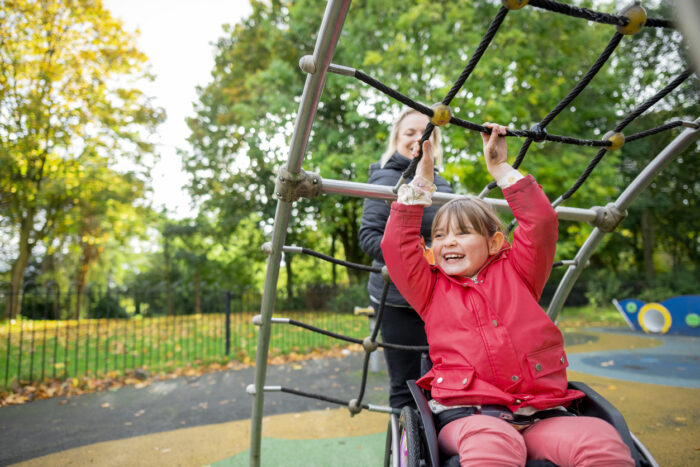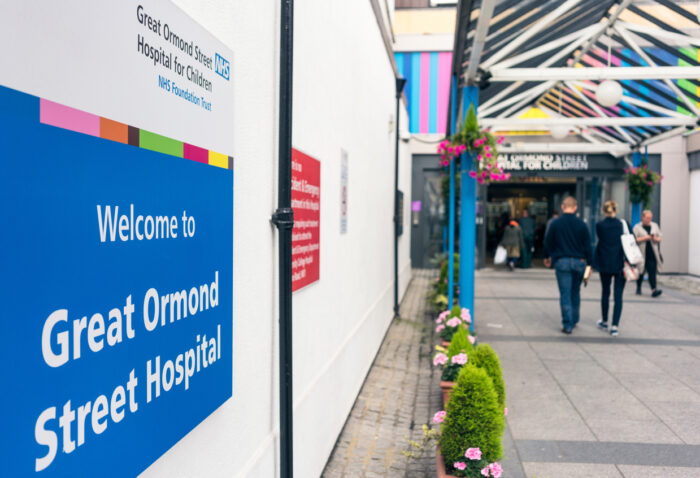In this guide, we provide information and guidance for any people and families who are affected by cerebral palsy, who may wish to seek legal advice. We understand the difficulties faced by any individuals who are affected by this condition, particularly if it’s been caused through negligent medical treatment, and encourage you to get in touch with our team.
Key information
- Approximately 1 in 14 babies born with cerebral palsy is as a result of medical negligence.
- It is estimated that as many as 1,700 children are diagnosed with cerebral palsy every year.
- NHS trusts in England paid out more than £3.5 billion in damages across 1,300 cerebral palsy clinical negligence claims over the past 11 years.
- 1 in 10 mothers who have had a baby in the past two years suffered negligence and did not sue the NHS, missing out on crucial compensation and support for their baby and family.
- A quarter (26%) of women who have recently or plan to have a baby in the next two years are delaying or have delayed pregnancy because they’re concerned about something going wrong.
- NHS failings in relation to cerebral palsy have cost taxpayers an average of £362 million a year since 2012.
Comments from Robert Rose
Robert Rose, our Head of Medical Negligence said: “One of the main causes of cerebral palsy is hypoxic brain injury during childbirth, which is where a baby’s brain gets starved of oxygen. Sometimes, this cannot be prevented or it is impossible to work out what caused the child’s injuries. “However, negligent mistakes by healthcare professionals can lead to a child sustaining a hypoxic brain injury. Errors can include delayed delivery, birth injuries, failing to respond to the umbilical cord being wrapped around a baby’s neck, and missing signs of foetal distress, such as meconium. “The regularity of maternity ward scandals in the press is alarming, yet wholly unsurprising; negligent injuries resulting in cerebral palsy should not take place and we know the lessons that should have been learned, but unfortunately time and time again, the same mistakes are made.” With no available cure, cerebral palsy is a lifelong condition that affects movement and co-ordination. Those living with the condition may face movement, walking and speech difficulties, learning disabilities, cognitive impairments, hearing or vision loss, epilepsy, spinal deformities and joint problems – requiring ongoing physiotherapy, speech therapy, occupational therapy and medication. In a survey of more than 1,000 women, we found that 8% of women said a healthcare professional had discriminated against them because of pregnancy or maternity, which more than doubled to 19.6% among women of colour. Robert said: “It’s crucial families have their voices heard and their concerns taken seriously in order to prevent issues, but also – should the worst happen – it’s imperative families do seek the compensation they need to provide the often expensive and essential equipment, care assistance, education, and home adaptations required to help their child live a fulfilling life.” According to cerebralpalsy.org.uk, approximately 1,700 children are diagnosed with cerebral palsy every year, meaning 1 in 14 of the estimated 18,700 new cases over the past 11 years were caused by negligent mistakes.
What is cerebral palsy?
Cerebral palsy is a lifelong condition that affects movement and co-ordination.
It is caused by a problem with the brain that develops before, during or soon after birth.
Those living with the condition may face movement, walking and speech difficulties, learning disabilities, cognitive impairments, hearing or vision loss, epilepsy, spinal deformities and joint problems.
Severity of symptoms can range widely. Some individuals experience only mild difficulties, while others are profoundly affected, causing severe disability.
What causes cerebral palsy?
Cerebral palsy happens as a result of the baby’s brain not developing properly in the womb, or having been damaged during, or shortly after, birth.
In some instances, the cause is unknown.
But typically, problems before birth include:
- Reduced oxygen or blood supply to the brain – known as hypoxic brain injury
- Infection during pregnancy
- Bleeding on the baby’s brain, such as a stroke
- Injury to the baby’s head in the womb
During, or after birth, causes could include: - Asphyxiation (the brain not getting enough oxygen) during birth or through result of chocking or nearly drowning
- Brain infection
- Serious head injury
- A stroke causing bleeding on the brain
- Very low blood sugar levels
Cerebral palsy negligence compensation data
A freedom of information (FOI) request submitted by Lime Solicitors to NHS Resolution showed that between the financial years 2012/13 and 2022/23, NHS trusts settled 1,307 clinical negligence claims related to cerebral palsy – paying out £3.5 billion in damages, an average of £2.7 million per case.
The following table shows the average damages paid per settled compensation claim related to cerebral palsy, between the financial years 2012/13 and 2022/23, split by location[7].
| Location | Average Compensation |
|---|---|
| Birmingham | £2.3 million |
| Bristol | £3.2 million |
| Leicester | £2.2 million |
| Nottingham | £3 million |
| Sheffield | £3 million |
| Lincolnshire | £3.4 million |
| Sussex | £3.1 million |
| Greater Manchester | £2.2 million |
| Leeds | £2.4 million |
| Essex | £2.6 million |
| Portsmouth | £2.8 million |
| Greater London | £3.1 million |
Data should not be considered a ‘league table’ due to some trusts providing more complex treatments, which may receive more claims than smaller organisations or those providing low risk care. Figures rounded to the nearest million.
The FOI data also shows the payouts made by hospitals between financial years 2012/13 and 2022/23 for cerebral palsy and brain damage that have recently been in the headlines for failing below safety standards in maternity care.
| Hospital Trust | Number of Claims | Total Compensation |
|---|---|---|
| University Hospitals of Morecambe Bay NHS Foundation Trust | 14 | £31 million |
| University Hospitals Sussex NHS Foundation Trust | 26 | £89 million |
| Nottingham University Hospitals NHS Trust | 16 | £38 million |
[6]Data obtained from NHS Resolution via a Freedom of Information (FOI) request. Data shows number and cost of clinical claims closed (or settled with a periodical payment order) between financial years 2012/13 and 2022/23 with a damages payment, where any injury is ‘Cerebral Palsy or Brain Damage’ and the specialty is Obstetrics.
[7]Each location may contain more than one hospital
| Location | Average Legal Fees per Case |
|---|---|
| Birmingham | £336,000 |
| Bristol | £412,000 |
| Leicester | £294,000 |
| Nottingham | £452,000 |
| Sheffield | £326,000 |
| Lincolnshire | £538,000 |
| Sussex | £451,000 |
| Greater Manchester | £368,000 |
| Leeds | £375,000 |
| Essex | £331,000 |
| Portsmouth | £339,000 |
| Greater London | £412,000 |
Figures rounded to nearest thousand.
If you are successful in your medical negligence claim, legal costs are covered by the NHS trust that provided your baby’s care. In unsuccessful claims legal fees are typically covered by ATE, or BTE insurance, so that you and your family are not out of pocket.
[8]Research was conducted by Censuswide on behalf of Lime Solicitors with 1000 UK women aged 20-40 who have given birth in the past two years, are currently pregnant, and/or are considering having a baby in the next two years, in March 2025.
Our FOI request: what the data shows
Data from our recent Freedom of Information request, submitted to NHS Resolution, shows that 1 in every 14 cerebral palsy cases could have been avoided over the past 11 years. Our data shows that between the financial years 2012/13 and 2022/23, NHS trusts settled 1,307 clinical negligence claims related to the lifelong condition – paying out £3.5 billion in damages, an average of £2.7 million per case, and £490 million in legal fees. Our data also reveals significant payouts by trusts recently under the spotlight for maternity wards that are falling below safety standards. Hitting headlines following the Ockenden review in 2022, Shrewsbury and Telford Hospital NHS Trust has reported 11 claims – with damages and legal fees surmounting to more than £16.5 million. University Hospitals of Morecambe Bay NHS Foundation Trust, which was also subject to an investigation following serious incidents in maternity services provided between January 2004 and 2013, reported 14 cases where babies suffered cerebral palsy or brain damage as a result of negligence during the 11 years. Damages paid to families total more than £31 million. Leaked emails highlighted issues at University Hospitals Sussex NHS Foundation Trust, which, according to our FOI data, paid out nearly £89 million in damages for cases of cerebral palsy or brain damage as a result of negligence in the past 11 years. Nottingham University Hospitals NHS Trust, which is currently undergoing an independent review, has paid out more than £38 million in damages for cerebral palsy or brain damage claims alone. The mistakes led to 16 babies being diagnosed with cerebral palsy.
Can cerebral palsy be caused by doctors or midwives?
Sometimes hypoxic brain injury cannot be prevented. However, there are examples of mistakes made my doctors, midwives and other medical professionals that cause hypoxic brain injury and cerebral palsy, as a result (this is called medical negligence, or clinical negligence).
Common complications or errors made by medical teams that result in cerebral palsy include:
- Prolonged labour without timely medical intervention
- Failure to monitor the baby’s heart rate properly during labour
- Insufficient or infrequent use of cardiotocography (CTG) to track the baby’s well-being
- Misinterpretation of CTG readings indicating foetal distress
- Not taking action when the umbilical cord is wrapped around the baby’s neck
- Delays in performing an emergency caesarean section (C-section) when needed
- Missing or ignoring clear signs of foetal distress during labour or delivery
Making a compensation claim
If you believe your child’s cerebral palsy was caused by medical negligence, you may be eligible to make a compensation claim.
For children, the time limit to start a cerebral palsy medical negligence claim usually lasts until their 18th birthday. After that, they typically have until age 21 to bring the claim themselves, if they have the mental capacity to do so.
However, if your child does not have the capacity to make legal decisions due to the severity of their condition, there is no time limit to make a claim on their behalf.
How do I claim compensation for my baby with cerebral palsy?
There are multiple stages to the claims process, in summary these include:
1. Appointing a trusted legal advisor, like our expert teams in Lime Solicitors who specialise in cerebral palsy claims.
2. Your appointed solicitor will review your case and discuss funding options with you for the claim.
3. They will then gather evidence, such as medical records and witness statements from those present at the birth, as well as expert opinion from independent medical professionals.
4. They will then establish liability (which means proving who is responsible for causing the harm or injury).
In order to successfully establish liability against the hospital your case will need to show that there was a breach of duty (that the healthcare provider failed to provide a reasonable standard of care) and causation (this failure directly caused harm or injury to the baby).
5. Your solicitor will send a letter of claim to your baby’s healthcare provider.
6. Your case will either go to court or be settled out of court.
7. If successful, through settlement, or the court process your child will be awarded compensation for their injuries.
[1] Cerebral Palsy
[2] Research was conducted by Censuswide on behalf of Lime Solicitors with 1000 UK women aged 20-40 who have given birth in the past two years, are currently pregnant, and/or are considering having a baby in the next two years, in March 2025.
[3] Our research: 1 in 14 cerebral palsy cases “could have been avoided” over the past 11 years
[4] Research was conducted by Censuswide on behalf of Lime Solicitors with 1000 UK women aged 20-40 who have given birth in the past two years, are currently pregnant, and/or are considering having a baby in the next two years, in March 2025.
Speak with our cerebral palsy solicitors today
If you and your family wish to seek appropriate legal advice and guidance following a cerebral palsy diagnosis, which you think may be grounds for a medical negligence claim, don’t hesitate to contact our cerebral palsy solicitors. Call us free on 0808 164 0808 or request a call back and we will call you.
Will it cost me anything to pursue a claim for cerebral palsy?
15% of women who have recently or plan to have a baby in the next two years say they would not sue the NHS if something went wrong during their pregnancy or birth because they wrongly believe that they could not afford it.
We offer a no win, no fee service, meaning you won’t have to pay any upfront legal fees, so there’s no financial risk to you, even if your medical negligence claim is unsuccessful, as long as you follow our legal guidance and provide honest information.
[5]Research was conducted by Censuswide on behalf of Lime Solicitors with 1000 UK women aged 20-40 who have given birth in the past two years, are currently pregnant, and/or are considering having a baby in the next two years, in March 2025.
To protect you from any legal costs if your claim doesn’t succeed, we usually arrange ‘After the Event’ (ATE) insurance on your behalf. If you already have ‘Before the Event’ (BTE) insurance through your home, car, or credit card policy, we may be able to use that instead, potentially avoiding the need for additional coverage.
Living with cerebral palsy
Is there a cure for cerebral palsy?
Currently, there is no cure for cerebral palsy. But there are treatments available for babies, children and adults with the condition.
These include:
- Physiotherapy – involves exercises and stretches aimed at preserving physical function and potentially improving mobility challenges
- Speech therapy – supports communication and speech development, and can also assist with issues related to swallowing
- Occupational therapy – helps identify challenges with daily activities and provides strategies or tools to make these tasks more manageable
- Medication – used to manage muscle tightness and other related symptoms
Surgery – sometimes recommended to address specific movement issues or physical development concerns
What is the quality of life like for people with cerebral palsy?
With a huge range of symptoms and severity, cerebral palsy will impact everyone differently. Some children will go to mainstream school, while other may need specialist support.
The NHS website provides a more detailed outlook for people with cerebral palsy.
What to I do next if I think I have a cerebral palsy claim?
If you think your baby might have cerebral palsy as a result of medical negligence, we encourage you to make contact with us today by calling 0808 164 0808, or filling in your details below:
Important words you need to know:
- Asphyxiation: the event or condition of oxygen deprivation
- Hypoxic brain injury: resulting damage to the brain from oxygen deprivation
- Medical negligence: when a healthcare professional fails to provide the standard of care expected, resulting in harm or injury to the patient. This is also known as clinical negligence
- Establish liability: proving who is responsible for causing the harm or injury
- Breach of duty: when a healthcare provider fails to provide a reasonable standard of care
- Causation: the failure to provide a reasonable standard of care directly caused harm or injury
- NHS Resolution: an ‘arm’s-length’ body of the Department of Health and Social Care that provides expertise to the NHS in resolving concerns and disputes.
- ‘After the Event’ (ATE) insurance: insurance purchased on your behalf by your solicitor to cover any legal costs, should your claim be unsuccessful.
- ‘Before the Event’ (BTE) insurance: insurance sometimes provided through your home, car, or credit card policy that may be suitable insurance to cover any legal costs, should your claim be unsuccessful.
Helpful resources
NHS Resolution
NHS overview of cerebral palsy
Action Cerebral Palsy
Scope
Cerebralpalsy.org.uk



